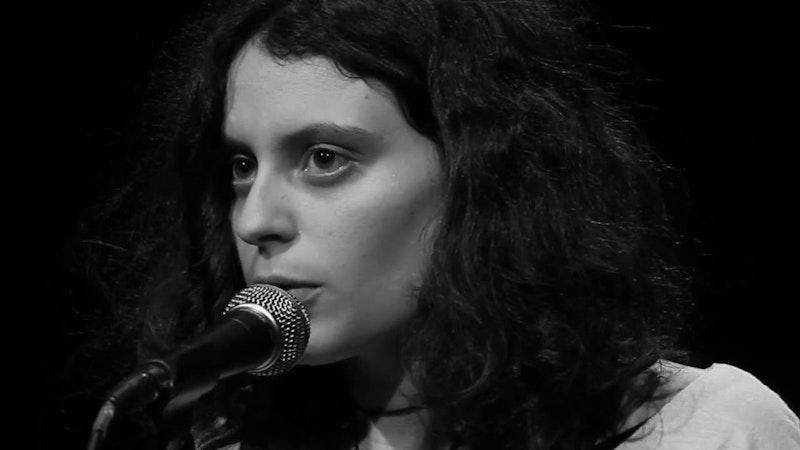Never before has so much music from all over the world been so instantly available. You can surf the web and click from Japanese commercial jingles to Ethiopian jazz to Latin American prog quicker than I could find a Waylon Jennings album 30 years ago.
But the distance still matters. It's easy to hear music from everywhere, but it's not always so simple to figure out what it is you're listening to. This week I stumbled on a newly released album by Ana Frango Elétrico, a performer from Rio de Janeiro. I don't know a lot more about her than that. She's received some press in Brazil, but even with a Google translation, the available information doesn't tell me much. I couldn't find any English language reviews of her work at all.
I came to Elétrico's new album, Mormaço Queima, or Hazelwood Burning, without preconceptions. And after listening to all 28 minutes of it, those absent preconceptions are now lightly stunned and tottering around. Elétrico's music is sort of pop, sort of jazz, sort of Brazilian Tropicalia, all stuck together at awkward angles. Her singing’s often flat and the instrumentation clunks, honks and fails to resolve.
The first track, "Farelos," starts with meandering electric guitar noodling, until Elétrico comes in with a little girl vocal singing sadly in English about how the kitchen is closed. An incongruous multi-tracked background squeaks in and out of harmony, and then a trombone honks like a slowly expiring waterfowl. The band swings into a samba sway for a couple of measures before sinking back into hesitant shuffling. It sounds as if the Shaggs decided to do an album of lounge music. Is this a disaster, you think, or did she really mean it to work like that?
I'm pretty sure Elétrico meant it to work like that, but, like Syd Barrett, Ornette Coleman or her countryman Tom Zé, she puts a lot of artistry into incompetence. "Loteria" begins as a fuzzed-out, brooding rock track that seems indebted to Kim Gordon. Elétrico's vocal starts in a version of Sonic Youth tough talk–singing, but then the music begins to squeak and clank, and her singing turns into a concussed croon. By the end the band is plunking their instruments almost at random. The general disintegration is emphasized by someone playing a competent trumpet. "Roxo" is a funk strut that gets lost while Elétrico repeats the name "Lenny Kravitz" (or at least I'd swear that's what she's saying). "Cascas e Feridas" is a slow, stoned drag which pulls itself into a rollicking uptempo jam squall before it collapses back into wah-wah groove.
Elétrico's music doesn't come out of nowhere. The Tropicalia movement—humor, eclectic influences, and psychedelic shifts in style and tempo is an obvious predecessor. Besides Tom Ze, Gal Costa's weirder work seems an obvious touchstone. Still, Elétrico doesn't sound exactly like them—or exactly like anything. She may be working in an idiom that makes more sense in Brazil. But from here, despite all of its familiar elements, her music is delightfully hard to categorize. It sounds like a pop or experimental or jazz album assembled by some unfamiliar blueprint somewhere else in the world.

